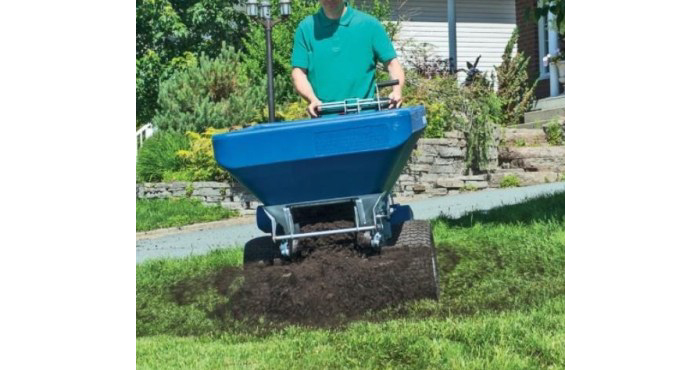If you want to improve your garden’s soil health and maximize plant growth, compost is a must-have. As an organic, nutrient-rich soil amendment, compost enhances soil structure, boosts microbial activity, and provides essential nutrients to plants. Whether you’re a seasoned gardener or a beginner, understanding how to use compost effectively can make a significant difference in your plant’s health.
If you’re looking for high-quality compost for sale, it’s crucial to know what type to buy and how to apply it properly. In this guide, we’ll explore the benefits of compost, how to use it for different types of plants, and essential tips for getting the most out of your compost investment.
What Is Compost and Why Is It Beneficial?
Compost for sale is decomposed organic material that enriches the soil by adding essential nutrients. It is created from food scraps, leaves, grass clippings, and other biodegradable materials. Here’s why compost is beneficial for plant growth:

- Improves Soil Structure: Helps aerate compacted soil, allowing roots to grow deeper.
- Retains Moisture: Reduces water loss, keeping the soil hydrated longer.
- Boosts Microbial Activity: Encourages beneficial bacteria and fungi that help break down nutrients.
- Provides Essential Nutrients: Supplies nitrogen, phosphorus, and potassium—vital for plant growth.
- Reduces Need for Chemical Fertilizers: Provides a natural alternative to synthetic fertilizers.
Choosing the Right Compost for Your Garden
When purchasing compost for sale, consider the following factors:
- Source of Compost: Look for compost made from high-quality organic materials rather than synthetic or industrial waste.
- Nutrient Composition: Ensure the compost contains a balanced mix of nitrogen, carbon, and other essential nutrients.
- Texture and Moisture Content: Good compost should be crumbly and slightly moist, not too dry or too wet.
- Absence of Weed Seeds: Choose compost that has been properly processed to eliminate weeds and harmful pathogens.
- Organic Certification: If possible, opt for organic-certified compost to ensure it’s free from chemicals.
How to Use Compost for Different Plants?
Compost is versatile and can be used for a variety of plants, including vegetables, flowers, trees, and lawns. Here’s how to apply compost for maximum benefits:
Vegetable Gardens
- Mix 2-3 inches of compost into the top 6 inches of soil before planting.
- Use compost as a side dressing around plants like tomatoes, peppers, and carrots to boost growth.
- Apply compost as mulch to retain moisture and suppress weeds.
Flower Beds
- Work 1-2 inches of compost into the soil before planting flowers.
- Add a thin layer of compost around existing flowers to improve soil health and encourage blooms.
- Mix compost with potting soil for container-grown flowers.
Fruit Trees and Shrubs
- Apply a 2-4 inch layer of compost around the base of trees and shrubs, keeping it away from the trunk.
- Mix compost with soil when planting new trees to enhance root development.
- Use compost tea (liquid compost) to provide a quick nutrient boost to fruit trees.
Lawns
- Spread a thin layer (¼ to ½ inch) of compost over the lawn to improve soil health and grass growth.
- Mix compost with grass seed when reseeding patches to improve germination.
- Use compost as a top dressing in the fall to maintain a healthy lawn year-round.
Best Practices for Applying Compost
To get the most out of your compost, follow these best practices:
- Apply at the Right Time: Early spring and fall are the best times to add compost to the soil.
- Avoid Overuse: Excessive compost can lead to nutrient imbalances and poor plant health.
- Keep It Aerated: Turn compost piles regularly to maintain proper decomposition.
- Mix with Existing Soil: Always blend compost with soil rather than applying it in thick layers.
- Use Well-Decomposed Compost: Ensure compost is fully broken down before using it to prevent plant damage.
Where to Find Quality Compost for Sale?
If you’re looking for compost for sale, consider these sources:
- Local Garden Centers: Many garden stores sell high-quality bagged compost.
- Municipal Composting Facilities: Some cities offer free or low-cost compost from recycled organic waste.
- Organic Farms and Nurseries: These sources often provide well-aged compost suitable for organic gardening.
- Online Retailers: Many reputable compost suppliers sell organic compost in bulk or smaller quantities.
Conclusion
Using compost is one of the best ways to improve soil health and boost plant growth. Whether you purchase compost for sale or make your own, incorporating compost into your gardening routine can lead to healthier plants, higher yields, and a more sustainable environment. By selecting the right compost and applying it correctly, you’ll be well on your way to creating a thriving garden filled with vibrant, healthy plants.
0 Comments